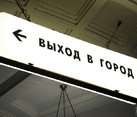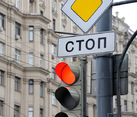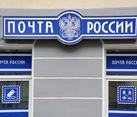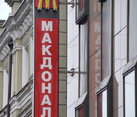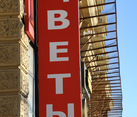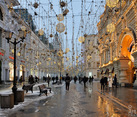Learn a Few Russian Phrases that Will Help You Survive in Russia
Hello my dear reader! First of all, allow me to greet you, since despite the many stereotypes that you might have heard about Russians, we are actually very friendly. This stereotype was formed simply because we don’t have a habit of smiling to strangers. In this article I would like to tell teach you a couple of Russian words and Russian phrases that will be of great help to you if you decide to travel to Russia.
Most commonly the phrases offered in such online articles are greetings, courtesy words, good-byes, and other stuff you probably won’t need. Except for courtesy words, everyone likes a courteous person, and that is our goal, right? – “To survive in Russia.” Also, it is a common stereotype in Russia that foreigners are usually very courteous, so it’s better to uphold it.
The gist of Russian pronunciation
Before I give you the actual phrases let’s talk a bit about Russian pronunciation. You will be greatly respected if you learn to properly pronounce Russian vowels (and of course letter “R,” but everyone knows how to do that) or at least make an attempt to do so. This might look a bit confusing, but bear with me. In Russian language there are a couple of letters that change the way they sound depending on where they are placed and what kind of letter they follow (consonant or vowel). Just like in English language letter Y in “yellow” and in “friendly” sounds completely different. Here are some Russian vowels that you have to learn how to pronounce:
- Е – (Ye – like in “yes”)
- Ё - (Yo – like in “yo-yo”)
- Ю (Yu – just like you say the word “you”)
- Я – (Ya – like in Yankee)
If those letters are located at the start of a word or follow a vowel, they are pronounced just the way I told you. However, if they follow a consonant, you have to remove the “y” sound, while making the consonant soft. In English, you don’t really distinguish between hard and soft consonants, but you still use them. For example, the word “table” and “tea,” “t” in the word “tea” is softer than in the word “table.” So, for example, the name Яна – Yana – you would pronounce just like you see it, but the name Аня (yes, you just reverse the letters and it’s a different name) would sound like “An’a” (n’ – being a soft version of letter N). From now on when I add apostrophe (‘) to a consonant, I’m trying to say that it is soft.
This is as good as I can explain this hard topic in a few short paragraphs. So now let’s get to the actual Russian phrases that you might need while visiting Russia (or any other Russian-speaking country).
A few Russian phrases that will ensure your survival
First of all, in the cold distant lands of Russia you need to establish contact with humans in order to survive (unlike the common stereotype – we don’t have many bears, and they won’t help you, even if you find them). Just like in English, when approaching a stranger, you would say “excuse me,” similarly in Russian you’re going to say:
- Excuse me = eez-vee-NEE-t’e = Извините (the “ee” sound – is just like in word “meet”; t’ = soft “t”; final “e” sounds like “e” in “excuse”)
Now, if you pronounced it properly, you’re all set and the person will gladly help you (if not – brace yourself… just kidding). I advise you to ask old ladies for directions – they usually have no one to talk to so they love to talk and usually know everything there is to know about the area. For example, if you need to find a post office to send postcards or gifts to your friends or relatives from Russia, the retired people will surely know where to find it, since this is where they get their pensions from:
- Excuse me, where is the nearest post-office? = Извините, где находится ближайшая ПОЧТА? (eez-vee-NEE-t’e, gde na-HO-di-tsya bli-ZHAY-shaya POCH-ta) (POST-OFFICE = ПОЧТА (POCH-ta), see the sign at the right).
On the other hand, if you talk to a young, smart-looking person, there is a high chance that they will know English (it’s the most popular second language), and you will be able to communicate, but they probably won’t know where anything is located.
When you come to Russia, you will be greatly impressed by the number of flower shops we have. Big shops, small shops, huge flower markets, and everything in between. So everywhere you go, you will see a sign: "ЦВЕТЫ", which means "FLOWERS" and is pronounced as tsve-TI. Women all over the world love flowers, and Russian women are no exception. In Russia it is a very common practice to give flowers as a gift on various holidays, especially birthdays, and of course the 8th of March (Women's day in Russia). Also, unlike in the Western countries, it is OK to give potted flowers, so that they may bring smiles to everyone's faces for months to come.
Flowers are great, but by now you must be already hungry, so the next phrase is:
- Where is a grocery shop? = gde pro-dooc-TO-viy ma-ga-ZIN = Где продуктовый магазин
She will most likely give you directions by waving her arms around and will talk too fast for you to understand, so just keep asking and walking in the direction given to you until you find it.
While there, you might see some items without a price tag on them. To find out the price of something ask:
- How much for it? = po-CHEM? = Почем? (and point at the object of your desire)
By this time you must have wandered for quite some time, drank, and ate, so, naturally, you might have to find a restroom. Most articles such as this avoid this topic, but I know how crucial this information might be.
- Where is the restroom = gde too-ah-LET = Где туалет
Now, you are pretty much all set as long as you don’t stray too much from your hotel or from me - your Russian translator.
Common Russian phrases any tourist should know
Now that you know how to survive, it is time to learn some other basic words and phrases.
Let’s start with greetings:
- Hi! = pree-VET = Привет (in Russian we use this greeting only with friends)
- Hello = ZDRAV-stvooy = Здравствуй (This is a more formal version of “hi”)
- Hello = ZDRAV-stvooy-t’e = Здравствуйте (This is a respectful version of “hello” which you can use with people you aren’t familiar with)
- Good morning = DO-bro-ye OO-tro = Доброе утро
- Good day = DO-briy den’ = Добрый день (remember that “n’” is a soft version of “n”)
- Good evening = DO-briy VE-cher = Добрый вечер
And on the same note, though it’s not a greeting:
- Good night = DO-broy NO-chi = Доброй ночи
Saying farewell:
- Bye = po-KA = Пока (just like “pree-VET = Hi” this is used with friends)
- Good-bye = do svee-DAN’-ya = До свидания
Some words of courtesy:
- Thank you = spa-SEE-ba = Спасибо
- You are welcome or Please = po-ZHA-loo-sta = Пожалуйста
Other words:
- Yes – da – да
- No – n’et – нет
- Maybe – mo-ZHET-bit’ – может быть
- Of course – ko-NECH-no - конечно
Latin vs. Cyrillic Alphabet
Due to the fact that Russians use Cyrillic alphabet, foreigners usually have a hard time reading some signs which they would otherwise recognize. For example, a Stop Sign in Russian is written like this - “СТОП”. I’ve heard people trying to read it like “KTON” or something like that, but actually, it sounds exactly the same in Russian, since Russian “C” is English “S” and Russian “П” is English “P”. Similarly, when people see this sign – “РЕСТОРАН” – near a restaurant, they read it as Pectopah, while in reality it is pronounced re-sto-RAN, almost exactly like in English language (just drop the “t” at the end).
Another word which you will instantly recognize if you know how to read it is “МЕТРО” – which means metro, subway, underground, tube (depending on where you come from), and is pronounced met-RO (only the stress is changed from first syllable to the second). Also, if you ever go down into the subway and wish to find your way back to the surface, look for a sign “ВЫХОД В ГОРОД” – Exit to City. Here is how it looks like:
Using your phone or a laptop you can always use Google Translate for Russian-English translation. There you can also find out proper Russian pronunciation. And if you need to type in Russian, you can use this free Russian keyboard service.
Russian language is very tough, pronunciation is confusing, and grammar is absolutely ghastly, so don’t beat yourself up if you can’t learn some Russian word right away or if you’re fumbling with a Russian translation.
Previous Travel Tip
Experience for Active Tourists: Top 20 things to do in Moscow
About Me in Short

My name's Arthur Lookyanov, I'm a private tour guide, personal driver and photographer in Moscow, Russia. I work in my business and run my website Moscow-Driver.com from 2002. Read more about me and my services, check out testimonials of my former business and travel clients from all over the World, hit me up on Twitter or other social websites. I hope that you will like my photos as well.
See you in Moscow!







